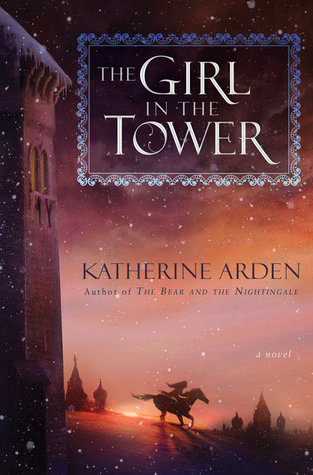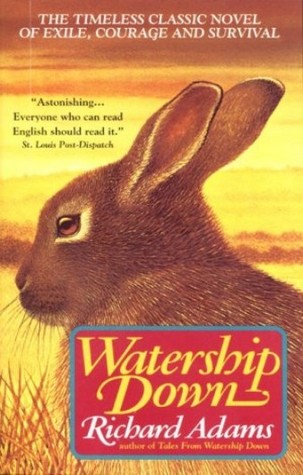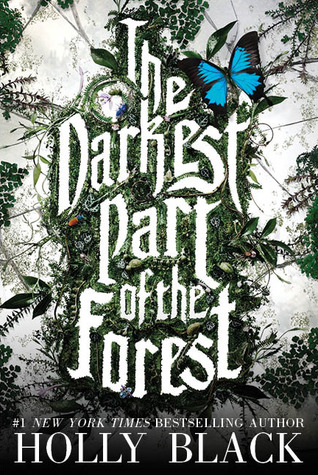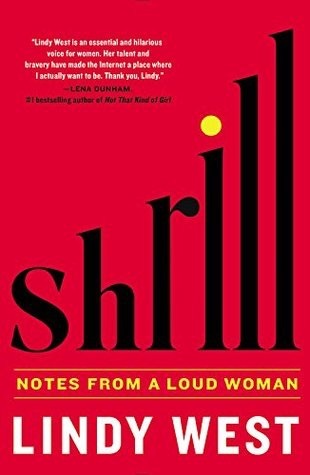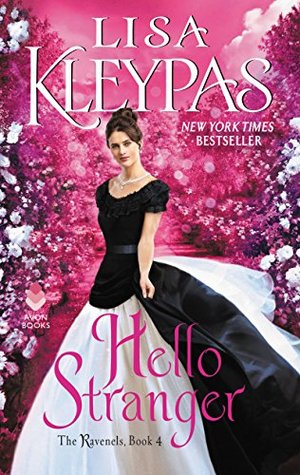So, apparently I only thought I had put this post out, when in fact it was just saved as a draft! Oops. Anyway, the work on the reading challenge continues, with two combined updates since I forgot to publish the first one.
As I've exhausted books I already own for categories, I started scouring lists and appending titles available through the library. With that in mind, I think I have a solid selection of titles put in below, with just a few categories that will need to be filled in as I go. I don't anticipate much change on these, since pretty much all of them are ones I'm very interested in and have been on my list for quite some time! Many of the ones that I want from the library have lengthy waitlists, so I've already started putting on holds so I can read them as they become available. I don't want to be scrambling at the end of the year for a book that has a billion holds on it.
Completed
-A bestseller from the year you graduated high school. I continued reading the Mercy Thompson series for this one, going with
Silver Borne by Patricia Briggs. This is a good paranormal fantasy, but I feel like this series has lost some of its early sparkle to me. Still, it was stronger than the book that preceded it, which probably bodes well for the following books.
-A book by two authors. Something I learned last year: Ilona Andrews is actually two people, a husband and wife writing team composed of Andrew and Ilona Gordon. Their book
Burn for Me got a lot of good buzz on my radar last year, so I went with that one. Oh, my. It was wonderful. I devoured it and its sequel, but I haven't quite made it to the third book yet. If you like paranormal fantasy with a strong romantic element, this is it.
-A book about death or grief. On a more somber note, I wanted to get this category out of the way early in the year so that, in case it was extremely depressing, it wouldn't bog down the end of my year. I chose
When Breath Becomes Air by Paul Kalanithi, a neurosurgeon whose life came to an early end from cancer. The book was published posthumously, and while it is about dying and we go into it knowing that the author did succumb to his disease, it's a strangely uplifting book. As his wife notes in the afterward, what happened to him was sad, but he was not a tragedy. Was it a groundbreaking book? Not really. But I enjoyed it nonetheless.
-A book about feminism. Contrary to what some people think, feminism is not about hating men or thinking women are better, but about wanting equality. Of course, if you're reading this, you're probably aware of that. A book that encapsulates that well is
Shrill by Lindy West. She talks about the struggles of being a woman in comedy, which is a notorious boys' club and rife with rape jokes, about struggling to be seen as both an overweight woman
and a real human at the same time (can you imagine??? /sarcasm) and other such things. It was poignant and irreverent, but not in a way that I think will scare off all her readers (and it clearly hasn't). It's not for everyone, for sure, but once I got over a little initial shock, I liked it quite a bit.
-A book by a local author. There are some big local authors from the Washington, DC area; however, I'd already read both of Laura Hillenbrand's works and I wasn't interested by any of the other ones that came up. Then I found a list of lesser-known local authors, including Carolyn Parkhurst and her book
Harmony. Bonus points, Parkhurst got her MA from my alma mater, American University!
Harmony is about a family desperately looking for stability, and ending up in something that might be a cult in the process. It's interesting to see the slide of how things were normal, and then they were a little off, and then they were
very off, and then they were disastrous. The alternating perspectives were a bit off-putting, but overall I liked this much more than I thought I would.
-A book about or set on Halloween. Books set on a single day are hard to find, and I wasn't particularly interested in reading a nonfiction book about Halloween, so I went for a book with a climax set on Halloween. A Discovery of Witches by Deborah Harkness had been on my to-read list for some time, because it seemed interesting, but other than some wonderful senses of place, this book didn't have a ton to offer. It was very generic, with a Special Snowflake heroine and a pace that absolutely dragged, and I am not at all encouraged to pick up the next book.
-A book by an author of a different ethnicity than you. I've had
The Bollywood Bride by Sonali Dev on my Kindle for a while now, so it was an easy choice for me. I read a lot of books by authors of different ethnicities than myself, so I wasn't worried about filling this category--but it seemed like a good chance to get to a book I hadn't otherwise gotten to. This wasn't quite what I was expecting. I thought it would be more of a romance, and while it had strong romantic elements, it was more of a story about family. Nevertheless, I liked it quite a bit and am interested in the other books...though the one after this one might be a bit too heartbreaking, given what we learn about the characters in this book.
-An allegory. Watership Down by Richard Adams was the April book selection for the Deliberate Reader book club on Facebook, and so an easy choice for this. Here's the thing: Adams has evidently said that he did not intend the book as an allegory in any way, and that it was just a story. However, it seems to be frequently read as one, and since I'm not even really sure what an allegory
is (well, I am, but I'm not sure I could list one that isn't religious, and I didn't have any interest in a religious allegory) it was good enough for me, being seen as a story about the tyranny and freedom, logic and emotion, and the struggles between them. It was much better than I actually thought it would be, and now it's a classic I can cross off my list!
Still to Come
-A book made into a movie you've already seen. Howl's Moving Castle, Diana Wynne Jones
-A book involving a heist. The Palace Job, Patrick Weekes
-Nordic noir. The Girl with the Dragon Tattoo, Steig Larsson
-A novel based on a real person. Circling the Sun, Paula McLain
-A book set in a country that fascinates you. Sky Burial, Xinran--this is one that I'll be reading for a book club and so will need to obtain somehow.
-A book with a time of day in the title. Light in the Gloaming, J. B. Simmons
-A book about a villain or antihero. Vicious, V. E. Schwab
-A book by a female author who uses a male pseudonym. Out of Africa, Isak Dinesen/Karen Blixen
-A book with an LGBTQ+ protagonist. Wanted, a Gentleman, K. J. Charles--this one isn't actually one I own or is lined up for a book club, but it was reportedly one of the best romance novels of the year and historical romances with LGBTQ+ bends are fairly rare, so I'm going to go for it.
-A book that is also a stage play or musical. Anna and the King of Siam, Margaret London
-A book about mental illness. The Bell Jar, Sylvia Plath
-A book you borrowed or that was given to you as a gift. Clockwork Prince, Cassandra Clare
-A book about for involving a sport. Riding Lessons, Sara Gruen
-A book with your favorite color in the title. Breakfast at Tiffany's, Truman Capote--yes, Tiffany blue is my favorite color. It's just such a gorgeous shade of blue-green that no other color quite captures.
-A book with alliteration in the title. Salt & Storm, Kendall Kulper
-A book about time travel. Drums of Autumn, Diana Gabaldon
-A book with a weather element in the title. Tempests and Slaughter, Tamora Pierce
-A book set at sea. The Unimaginable, Dina Silver
-A book with an animal in the title. Big Fish, Daniel Wallace
-A book set on a different planet. The Sparrow, Mary Dorica Russell--this is the sci-fi book for discussion this year in the Deliberate Reader book club that I'll need to get.
-A book with song lyrics in the title. Catch Me If You Can, Rank W. Abagnale--this is like a million songs, apparently, though I'm not familiar with any of them.
-A book mentioned in another book.
-A book from a celebrity book club. The Rules Do Not Apply, Ariel Levy--from Emma Roberts' book club. I wanted to do an Emma Watson "Our Shared Shelf" pick, but she hasn't picked anything I was really interested in recently, so I'm going this way instead.
-A childhood classic you've never read. The Secret Garden, Frances Hodgson Burnett--I don't own this one but I don't have a lot of "childhood classics" lying about, so I'll have to get one no matter what.
-A book that's published in 2018. A Reaper at the Gates, Sabaa Tahir
-A book set in the decade you were born. Little Fires Everywhere, Celeste Ng
-A book you meant to read in 2017 but didn't get to. Arcana Rising, Kresley Cole
-A book with an ugly cover. Brave New World, Aldous Huxley--I know there are tons of editions of this book, but mine has these weird blood cell-like things on the cover and it is weird and gross.
-A book that involves a bookstore or library. Smoke and Iron, Rachel Caine
-Your favorite prompt from the 2015, 2016, or 2017 Popsugar Reading Challenges.
Beauty, Robin McKinley, from the 2016 category "A book based on a fairy tale."
-A cyberpunk book. Neuromancer, William Gibson
-A book that was being read by a stranger in a public place.
-A book tied to your ancestry. In the Garden of Beasts, Erik Larson--I'm half German so I picked a book that takes place in Germany, since I don't think there's anything both more specific and particularly interesting in my ancestry that there'd be a good book about.
-A book with a fruit or vegetable in the title. The Garlic Ballads, Mo Yan--yes, garlic is a vegetable! It is actually a type of onion. #themoreyouknow
-A book by an author with the same first or last name as you. As You Wish, Chelsea Sedoti
-A microhistory. The Radium Girls, Kate Moore
-A book about a problem facing society today. Sex Object, Jessica Valenti
-A book recommended by someone else taking the Popsugar Reading Challenge. The Magicians, Lev Grossman, courtesy of "Chrissy" on the recommendations thread in the Popsugar Reading Challenge Goodreads group.
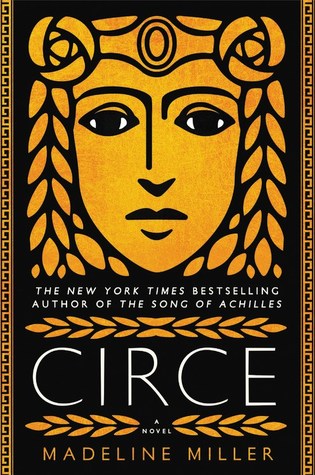 After an off-month for Book of the Month in March, where they only had one title in which I was interested, they came back strong in April with a variety of books with piqued my interest. The first and foremost of them, however, was Circe. I haven't read Miller's other Greek mythology-inspired book, The Song of Achilles, but Circe's story interest me anyway, and much more than Achilles' did. A goddess in her own right and the daughter of Titans, Circe is best known for her appearance in The Odyssey, where she tries to delay Odysseus on his way home from the Trojan War. She is not Calypso, another nymph/witch who succeeds in delaying Odysseus for something like seven years.
After an off-month for Book of the Month in March, where they only had one title in which I was interested, they came back strong in April with a variety of books with piqued my interest. The first and foremost of them, however, was Circe. I haven't read Miller's other Greek mythology-inspired book, The Song of Achilles, but Circe's story interest me anyway, and much more than Achilles' did. A goddess in her own right and the daughter of Titans, Circe is best known for her appearance in The Odyssey, where she tries to delay Odysseus on his way home from the Trojan War. She is not Calypso, another nymph/witch who succeeds in delaying Odysseus for something like seven years.